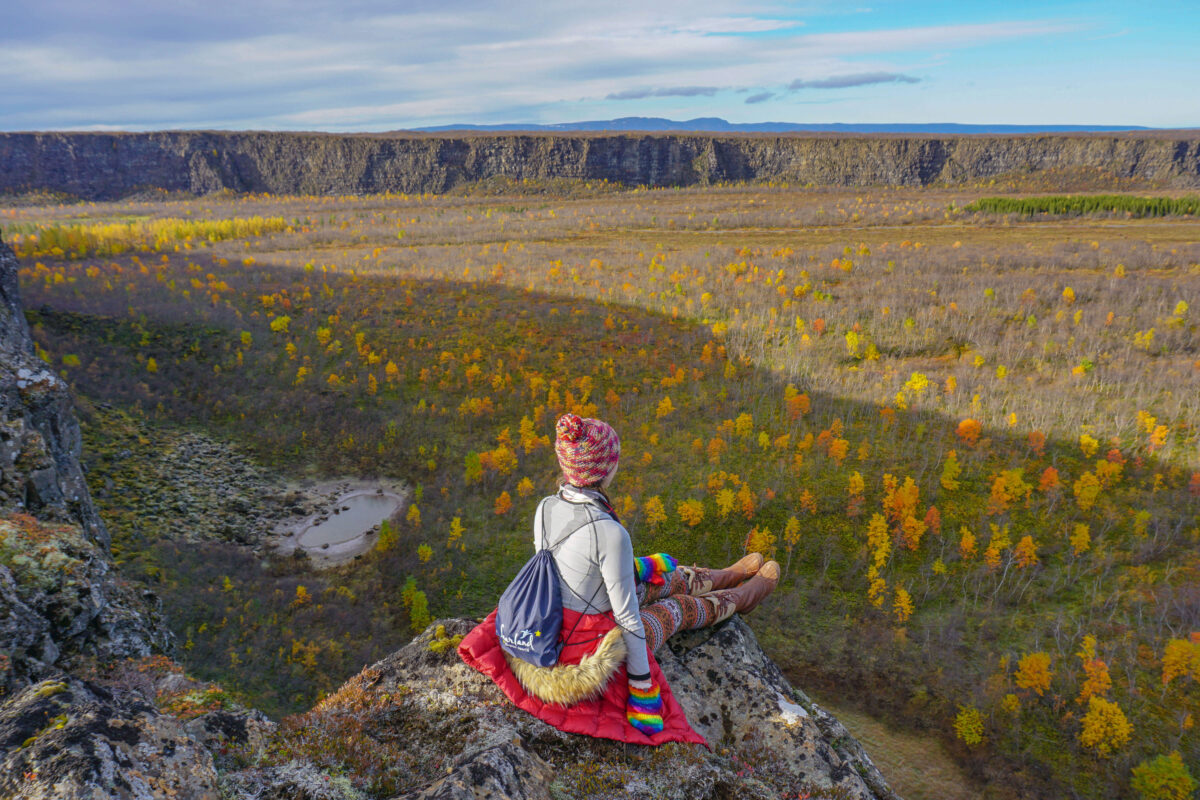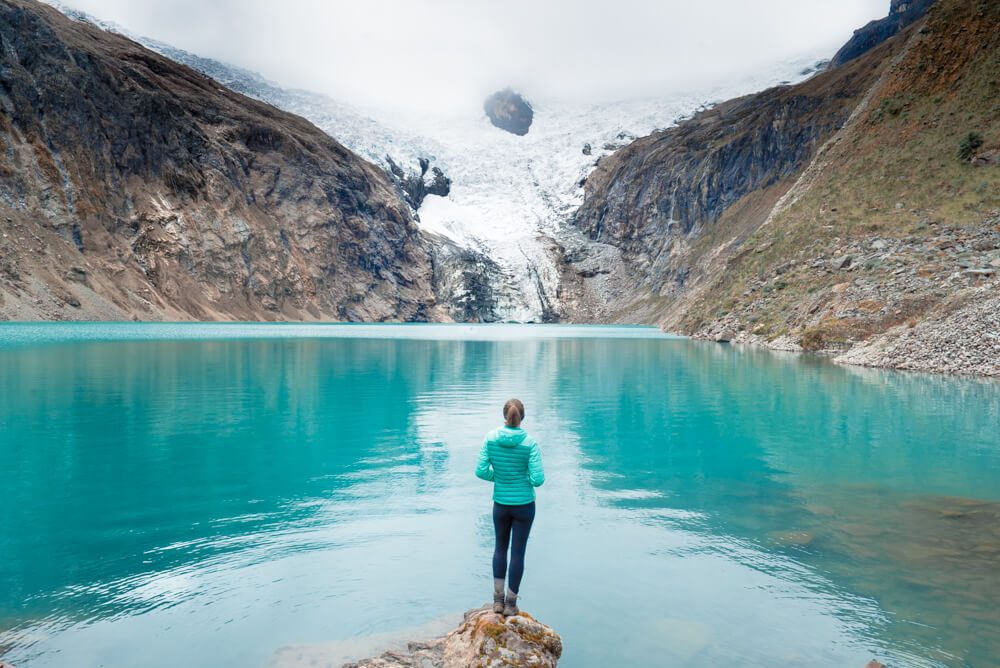I remember the untimely death of two female travelers in Vietnam making headlines when I was getting ready to leave for the trip that I’d been planning, saving, and frankly stressing over for nearly a year.
A couple of girls had mysteriously died, most likely from poisoned drinks. Several close friends sent me this article and warned me to ‘be careful’.
That same article drew parallels between the deaths of these women and a handful of others that had all happened in Southeast Asia over the previous three years – most of whom were actually not traveling alone. While everyone else was stressing out over my big trip, I felt even more reassured. Only a few deaths over several years? That sounded like pretty good odds to me considering that a gunman had opened fire in a Colorado movie theater killing 12 and injuring 70 just a few weeks prior.
And that’s why it’s news when a female traveler dies abroad – because it doesn’t happen that often.
Yet, when a woman travels abroad and something terrible happens to her, people inevitably question her judgement. They say that she should’ve just stayed home. Should have never gone on a blind date, should have never put herself in that situation, should never have drunk that drink. It’s as though she knowingly compromised her safety and through no fault but her own, had met an unfortunate ending.
Each time one of these stories comes out I know there will be another outpouring of questions about solo travel’s viability, particularly for women. Each time I will shake my head and insist that traveling solo is not any more dangerous than walking down the street, going on a blind date, and ordering a drink at home.
I want to back it up this time with facts, so I did a bunch of research with my team to bring you the following crystal clear conclusion:
Traveling abroad makes you statistically safer than staying at home.
Moreover, there is no evidence to support that being alone makes you more of a target. Here’s why:
I’m Sorry Sweetie, But the US is Not a Safe Country

The US is one of the most dangerous countries in the world for women. In the Thomson Reuters Foundation Annual Poll, the US is the only Western country on the top 10 World’s Most Dangerous Countries for Women list, along with Syria, Somalia, and Congo. Why? I could bring up the sharp increase in mass school, movie theater, post office, hospital, and concert shootings, or the staggeringly high incarceration rate – the highest in the world, but I think the most sobering statistic has to do with rape.
According to the National Sexual Violence Resource Center’s 2010 report, nearly 1 in 5 American women will be raped at some point in their lives.*
Astonishingly, in more than 8 out of 10 reported cases, the victim knew the perpetrator.
The stats are similar in Canada, where nearly 500k sexual assaults are reported by women per year. However, they estimate that only about 5% are actually reported. Just like in the US, it’s almost always by someone the victim knew, with only about 16% of rapes carried out by a total stranger. In a 2014 study by the European Union Agency for Fundamental Rights, findings are similar.
The type of violent crime women are most likely to experience across the board is sexual assault, which means that most violent crime that women experience is at the hands of someone they know. This led me to wonder, is it the same abroad?
*Since every time I write an article about women someone brings up men, I also want to share that 1 in 10 American men have experienced sexual assault and 1 in 71 have been raped as well. I also want to emphasize that by talking about women I’m not suggesting that males don’t also encounter violence or that what men experience doesn’t matter. It does, it’s just not the topic of this article. So you can calm down over there, Neil.
More Women are Kidnapped, Killed and Raped at Home than Abroad
The previous statistics cover most of the Western world, however rape and violent crime is a worldwide problem. It’s just that the violence largely occurs between people who know each other. I was surprised to find that in countries with a lower socio-economic status and with even higher rates of sexual violence, the likelihood that the victim already knew the perpetrator was even higher, according to the World Health Organization’s global and regional estimates.
So as a solo traveler who doesn’t know anyone, how much are women setting themselves up for disaster, really? Let’s dig into the statistics of crime against Americans and Brits abroad to help answer that.
According to a TIME review of the U.S. State Department’s registry of American deaths abroad, “On average, over the last 13 years, only 827 Americans died of unnatural causes while abroad each year. When you consider the significant number of Americans who travel abroad, more than 68 million Americans in 2014, nearly all returned home.”
The homicide rate in Louisiana, by contrast, is 12.4 per 100,000 people. Here are the rest of the states in case you’re curious. Further detailed statistical analyses of this information shows in the end that you are statistically in no more danger abroad than staying in the US!
For more stats, peruse the Global Peace Index by Vision of Humanity, which ranks countries by safety based on human rights, violence, and other statistics. The US is ranked 122 out of 180 countries for safety, coming in behind several countries in Africa and South America.
It’s also worth noting that most unnatural American deaths abroad have to do with motorized vehicles, which are the fourth leading cause of death domestically as well. Other causes include drowning, suicide, and 2000 homicides in a 13-year period. Unfortunately this report does not take rape into account or provide female-specific statistics, however it’s still quite encouraging to see that in general, deaths of travelers abroad are rare.
The Foreign and Commonwealth Office British Behaviour Abroad report 2014 shows an average of 5,000 reported deaths per year, however this includes natural deaths and does not break down the cause. A portion of these deaths are British retirees abroad at the end of their lives and dying of natural causes, skewing the death rate in the Philippines, in particular. The number one issue is stolen passports and travel documents, at around 28,000 per year, and an average of 150 sexual assaults per year. This is, of course, just the numbers that are reported, however the amount of incidents is still proportionally low compared to number of travelers.
None of that is to say that we should fear living or traveling within our own countries. However these stats refute the argument that ‘solo female travel is dangerous’.
Solo Traveling Means Freedom
Based on the reported homicides abroad, there’s no evidence to support that being alone made any difference. In many of the widely reported homicide cases, women were victimized with their boyfriends, with friends, or even with a local guide. Traveling solo doesn’t seem to be what makes people a target. Being targeted by someone who intends to carry out a crime is what makes people a target. It’s unfortunate, yes, but a tourist death does not automatically mean it’s the fault of the tourist.
We have to stop blaming the victim. Suggesting that women stay home, when evidence clearly suggests that bad things happen to women everywhere, only keeps us confined. It’s not women and our desire for freedom that has to change, it’s the attitude towards women’s rights that needs to change.
Unfortunately, a woman who is empowered, shows self-agency, and independence, is threatening to some. It’s threatening because it’s different, it’s change, and humans en masse don’t like change. It’s why we get asked when we’re going to settle down, because that’s a role that society can understand. It feels comfortable. It fits into a mold.
It’s why we have such loud naysayers when we announce our plans to travel – people who don’t trust our judgement under the guise of loving us or caring about us. The truth is we have awakened their fear – fear of a life unlived to the fullest, fear of what they don’t know or want to understand.
Solo traveling makes us more resourceful, confident, capable, and independent. How can any of that be bad?
Women from All Over the World Travel Solo (And Numbers are Growing)

Solo traveling is not as uncommon as it used to be. Since 2012, when I started traveling alone, Google has recorded a fourfold increase in interest in solo travel. Booking sites have reported similar findings, with Hotelscan and Hitwise both reporting over 100% increases in solo traveler bookings.
Women from all kinds of backgrounds and cultures travel solo. On this site you can read the stories of solo female travelers from Kenya, Indonesia, Malaysia, India, and Nigeria. Women of many ages and walks of life travel solo as well, like this group of non-millenial solo travelers, travelers who are in a relationship, a single mother, Muslim solo female travelers, and solo travelers who managed to save up to travel on minimum wage. Want to connect with other solo female travelers? The BMTM Solo Female Traveler Connect Facebook group is almost 9k members strong.
I know that there are still concerns for those who wish to travel alone. I had them too – how can I deal with naysayers, how can I keep myself and my belongings safe, and how can I make sure I’m not lonely? I went over each point in this video:
When people ask me for advice on how to stay safe abroad, I know they’re looking for a checklist of tips, but in reality it’s the same as staying safe at home.
If you wouldn’t do it at home, don’t do it on the road.
Other countries and cultures are more similar than they are different. Everyone wants to feel safe, loved, and okay. People are mostly good.
We Still Have a Lot of Work to Do
All of the encouraging stats aside, I don’t feel this is an honest article if I glaze over the fact that we still need to make huge strides where rape, sexual assault, and sexual harassment are concerned – both at home and abroad.
Even though the stats above paint a generally rosy picture, we can assume that the vast majority of rape and sexual assault go unreported. In a chilling retelling of the rape of Erin Helfert, an American woman traveling in Morocco, the consulate, police, and her own friend all declined to get involved to help her press charges.
According to the article, “if a British citizen is a victim of sexual violence abroad, the consulate assigns an officer to accompany the victim to the police and help arrange medical exams. In the case of Canada and Norway, victims may get financial assistance.”
The perpetrator was eventually convicted thanks to the tireless effort and fortitude on Helfert’s part, however her experience is evidence that widespread change is desperately needed.
I experienced sexual assault while walking down the street in Nepal. A man grabbed my breast then ran away. Thankfully I walked away unscathed, however when I reported the incident to local police, they acted like I’d ruined their evening by demanding an escort back to my hostel. The hostel owner said “that sort of thing never happens here,” and another guy at the hostel told me to, “try to forget about it.” No wonder women don’t report crimes.
Thank goodness for the #metoo movement and women like Erin speaking out. By talking about these things we can move towards a different tomorrow.
On Living Your Dreams
All of that said, while tragedy can strike anyone at any time, I know that my odds are low. In nearly seven years of traveling, including hitchhiking, often solo, in 7 countries, this is my only sexual assault incident at the hands of a total stranger, and the previous statistics do show that unfortunately, being at home vs. abroad doesn’t make us any less likely to experience sexual assault. If anything, being abroad lowers it.
Far more people die of accidents, cancer, heart disease, and diabetes than traveling the world. I’d rather take my chances and live out my dreams.
I hope that if you desire to travel as well, that you don’t let other people’s fears hold you back. That’s what I hope to do with this article. If it encourages just one person to go out and see the world, to become a better citizen in it, and to become a more culturally educated and worldly citizen, then I’m happy.



